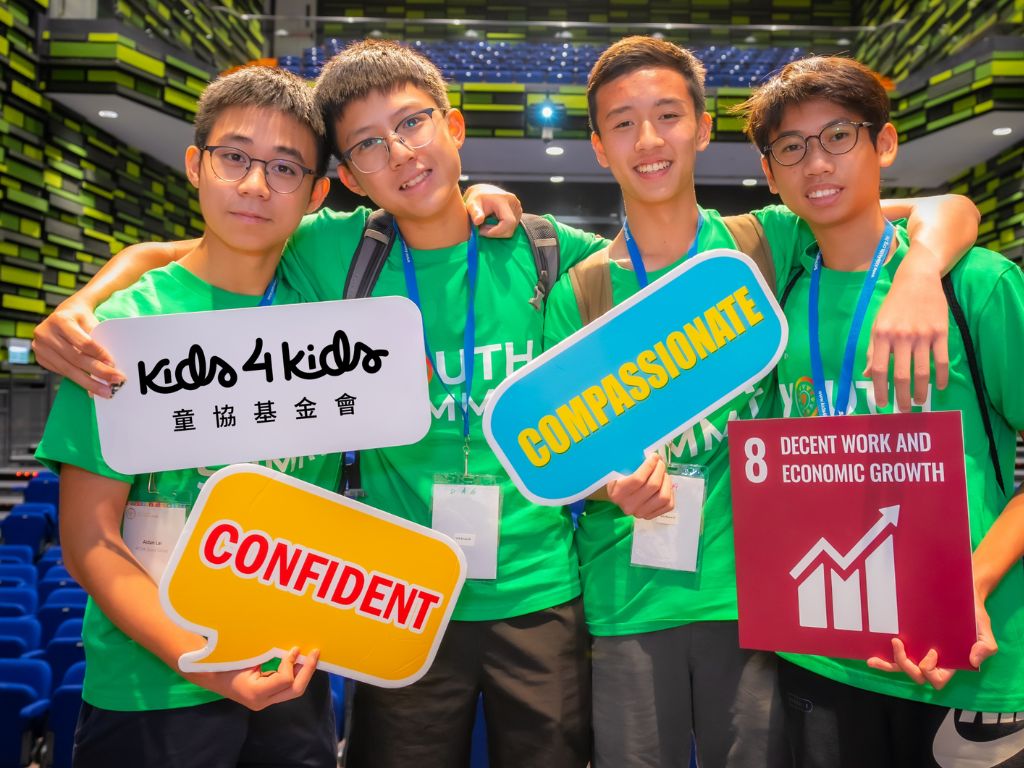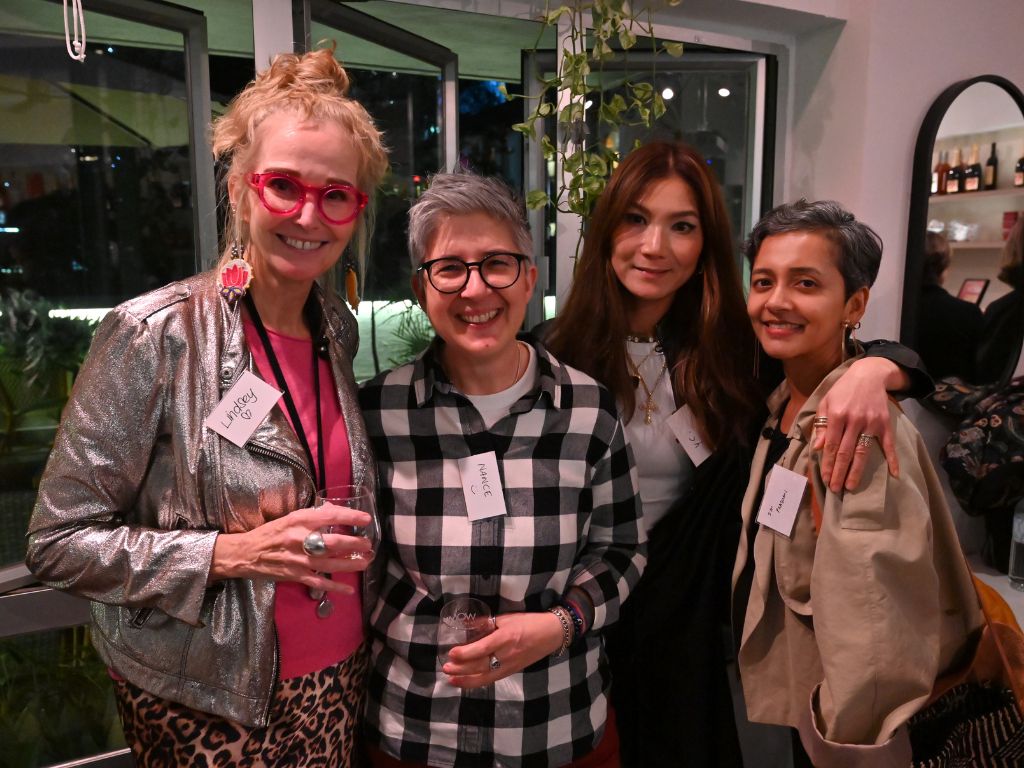Nourishing the Community
Being Neighbourly x Geoffrey Yeung, Food for Good
- Author/ Jada Seaton
Share
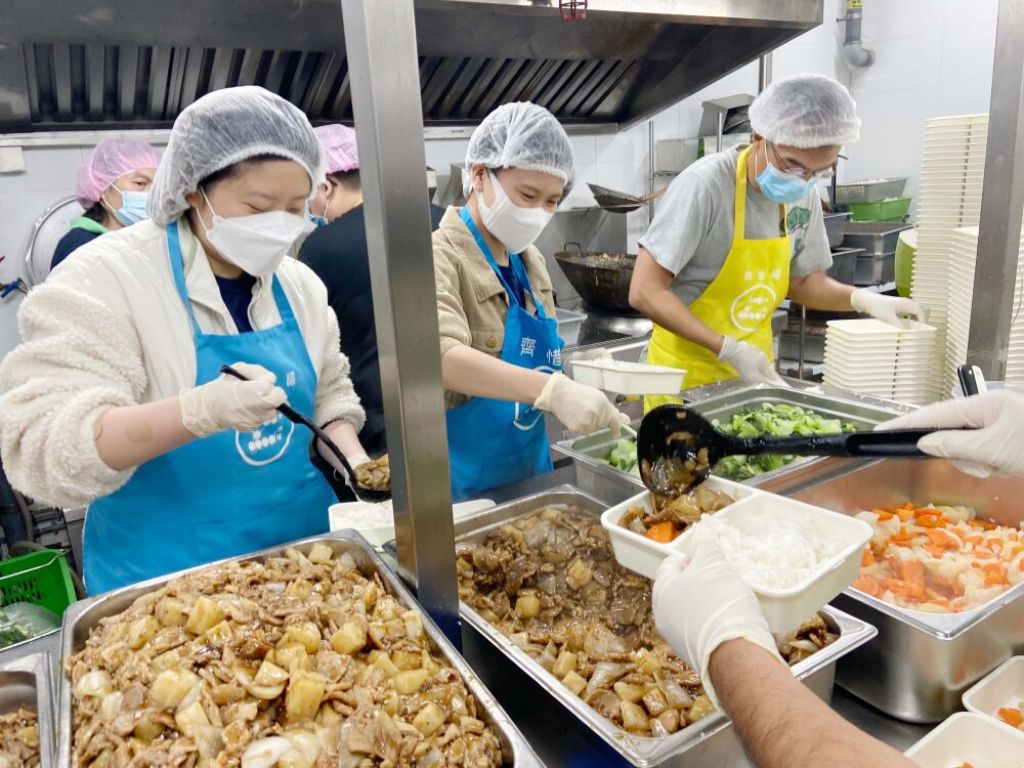
As is the case with most developed cities, Hong Kong suffers from a severe food waste issue. According to a report from the Environmental Protection Department (EPD), one-third of all solid waste produced in Hong Kong in 2022 came from food waste. Food For Good hopes to change this.
Established in 2013, Food For Good is a registered charity and environmental organisation which works to reduce food waste in Hong Kong. It provides a range of services to communities across the city, from redistributing meals to those in need to educating the public.
One of the main pillars of the organisation is its community kitchens. Food for Good currently has two locations: Tung Tau and Yau Tong. These kitchens receive surplus food donations from wet markets, supermarkets and food suppliers, which are used to prepare hot meal boxes for people in need.
“Every morning, our logistics team distributes over 1,500 meal boxes to various vulnerable communities across Hong Kong,” says Geoffrey Yeung, Food For Good’s Head of Marketing and Senior Manager. “This optimizes social food resources and alleviates the living burden of the underprivileged.”
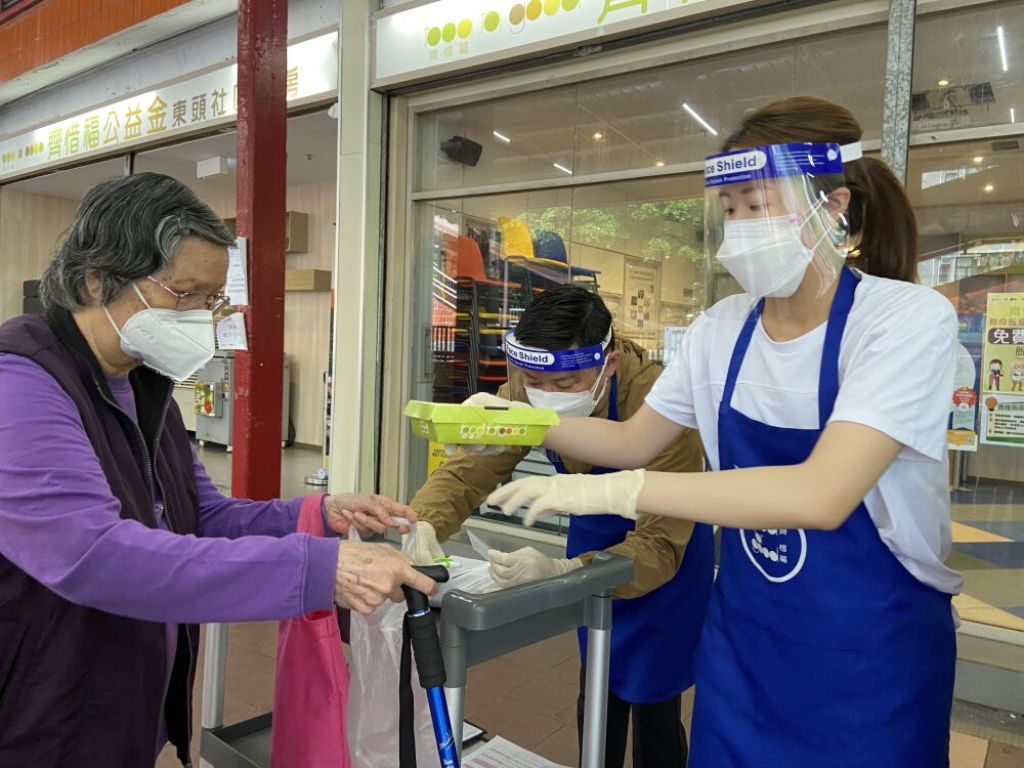
Any food waste produced while cooking is turned into compost for organic farming to support Food For Good’s zero-waste cooking initiative. “This sustainable practice ensures that resources are recycled, producing fresh vegetables that are brought back to the table as food,” Yeung says.
Eighty-seven year old ‘Uncle Cheung’, is one of many others who have received the 400,000 to 500,000 nutritious meals per year that Food for Good provides to Hong Kong’s elderly population: easing the financial difficulties that come with living in such an expensive city.
The octogenarian has been a member of the Food For Good Community Chest Tung Tau Community Kitchen Hot Meal Service since 2020. “Living alone with infrequent visits from his daughter, he finds comfort and support through the Hot Meal Service,” says Yeung, explaining that due to Cheung’s mobility issues, shopping for food and other daily necessities is a challenge.
“Conveniently located nearby, the community kitchen provides him with nutritious lunches. Surplus food shares, such as dried food packs and bread, supplement his diet and allow him to maintain a low-carbon lifestyle that reduces food waste.”
According to Yeung, another benefit is that Cheung’s daily routine now includes a place where he can “‘check-in,’ fostering a sense of community connection.”
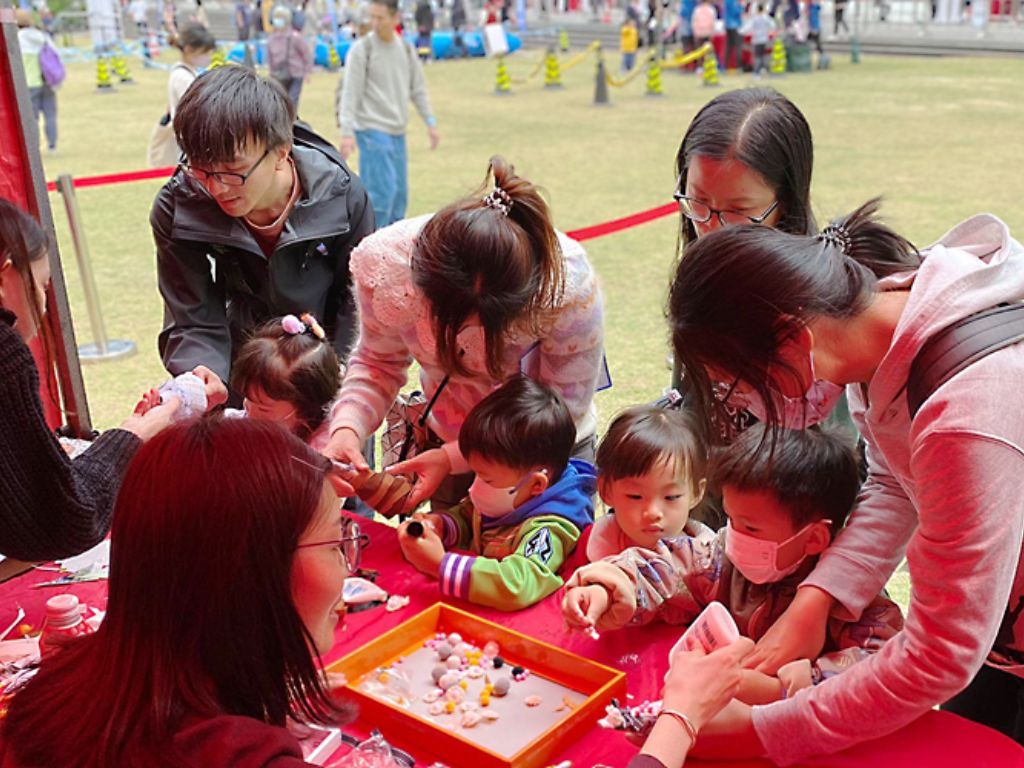
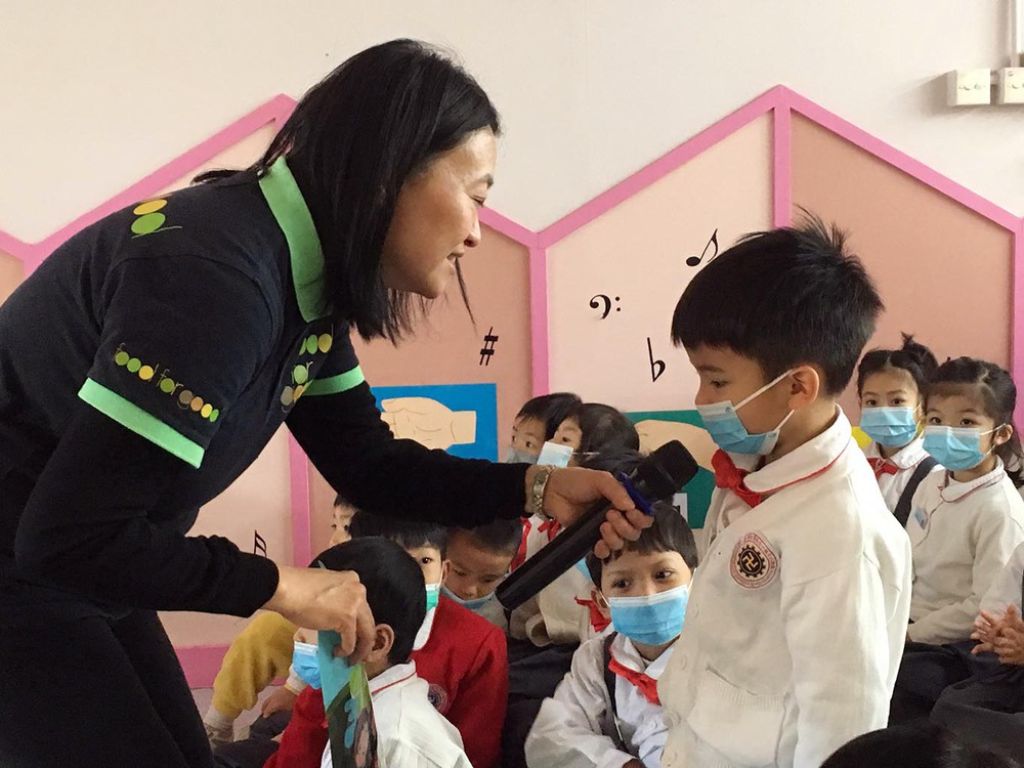
But, community kitchens aren’t the only way Food For Good is fighting against food waste. The charity also engages in education.
“One of our core objectives is to educate our future generations on the importance of food. We hope children [will] become more aware of local and global situations related to hunger and of the need to develop empathy if we are to be globally competent citizens,” underscores Yeung.
Food For Good @ Campus was launched as a response to the desire for a more well-informed generation. Since its inception, the programme has been implemented in more than 1,600 schools and engaged more than 733,000 participants. Over the course of a year, students learn about food waste management and treatment, creating their own food waste recycling systems to produce compost for use in school gardens.
In addition, Food For Good has a mobile education truck which, as Yeung explains, “is deployed periodically to promote the importance of reducing food waste and organic farming to the public”.
These items are made possible through support from the Housing Bureau’s Funding Scheme to Support Transitional Housing Projects by Non-government Organizations, and Food For Good is committed to raising overall living conditions of grassroots Hong Kong citizens.
Since 2022, the charity has overseen the planning, construction and operation of two transitional housing projects: Tsuen Fook Kui in Tsuen Wan and Kai Fook Kui in Kai Tak. “Our housing programmes aim to assist grassroots citizens by providing transitional housing to over 2,000 individuals. Our goal is to ease the living burden of low-income families, single parents, the elderly and those with disability needs, who are waiting for public housing and those living in inadequate housing.”
Through a variety of social services, Food For Good engages the residents of these housing projects in activities that enhance their physical and mental well-being and foster a feeling of community.
Yet, for all their successes, Food For Good still faces challenges. “With the current economic climate, we have seen a steady rise in need for our hot meal boxes,” Yeung states. “Even with our current distribution levels, we often find small communities scattered across Hong Kong where people are living in terrible conditions. One of our main challenges is to identify these communities and to arrange the necessary resources to best help them.”
Yeung says that there are numerous ways in which people can support Food For Good’s mission. The organisation accepts volunteer applications from individuals year round; and those looking to get involved may visit their website. In addition, businesses can reach out to request ESG and CSR reports to reflect the volunteer work their colleagues have done with Food For Good.
What is the best thing about the work that you do?

“By being hands on and involved with the preparing and distributing of hot meals allows me to see the immediate impact I am having – the hunger is alleviated right away,” says Geoffrey Yeung, Head of Marketing and Senior Manager.
“I’ve managed to build a strong community connection and the gratitude I witness from the relief and joy of those receiving help is deeply humbling,” he adds.
“Furthermore, our various projects also aim to empower our communities by helping hose in crisis get back on their feet. Working with our corporate clients, is a great way to boost team morale and at the same time, fulfils ESG/CSR goals.
Food for Good
Room B1, 3/F, Cheung Lung Industrial Building, 10 Cheung Yee Street, Cheung Sha Wan, Kowloon.
- +852 2568 2922
- [email protected]
- www.foodforgood.org.hk
Share
About the Author

Jada Seaton
Jada Seaton is a writer of fiction, poetry, and creative nonfiction from Chicago. They hold a BA in English and Creative Writing from Seattle University and live in Hong Kong with their partner.
Hong Kong Shark Foundation
www.hksharkfoundation.org
New Stories
Stay Up To Date
Want the latest insights and fresh content delivered straight to your inbox? Subscribe to our newsletter and stay updated with our exclusive content!
